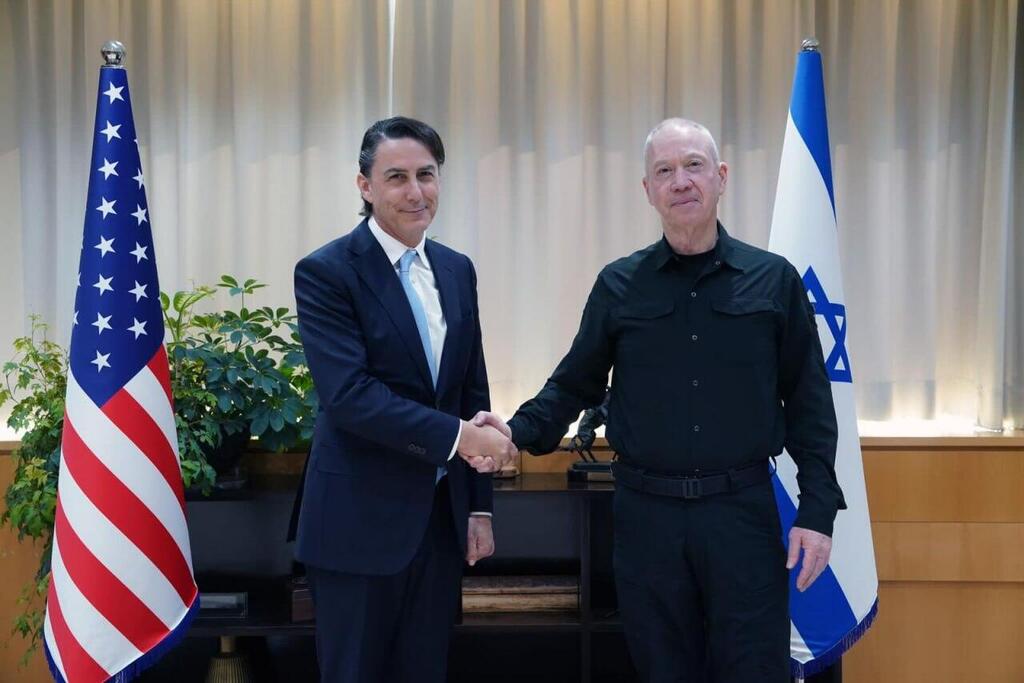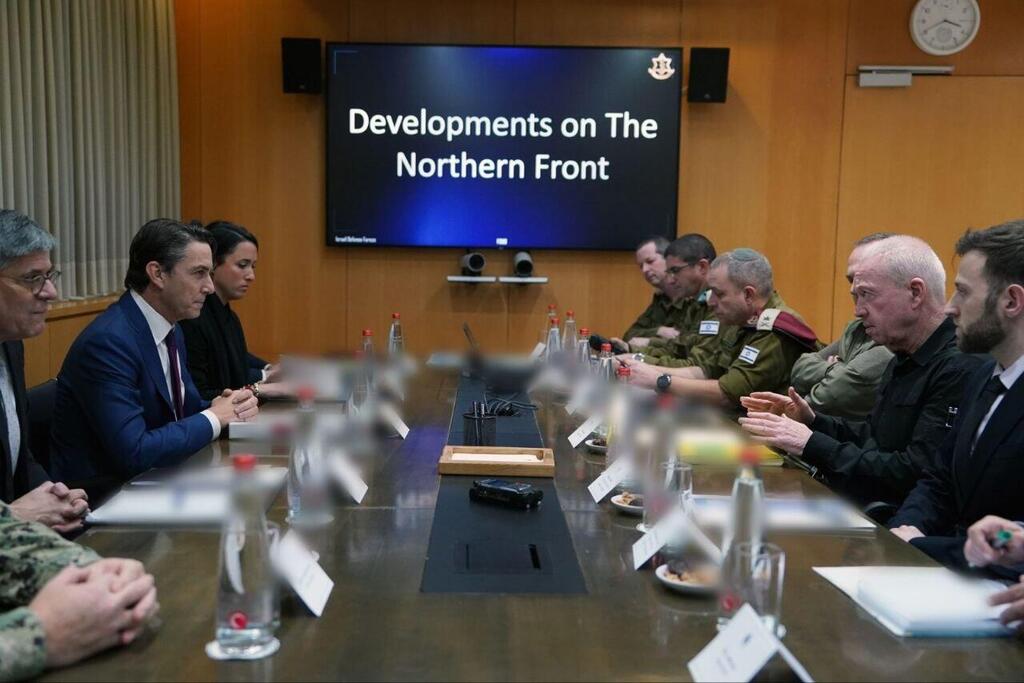Getting your Trinity Audio player ready...
U.S. President Joe Biden's Middle East envoy Amos Hochstein outlined the key elements of a political settlement to deescalate tensions between Israel and Hezbollah during his visit to the Jewish state on Sunday.
Read more:
The plan consists of two phases: In the first, Hezbollah would cease hostilities actions along the border with Israel and will retreat between eight to ten kilometers north from the border.
2 View gallery


US President Joe Biden's Middle East envoy Amos Hochstein and Defense Minister Yoav Gallant
(Photo: Defense Ministry)
Israeli residents will return to their homes, and a significant deployment of the Lebanese army and UNIFIL peacekeeping forces will maintain stability in southern Lebanon and along the border.
In the second phase, Israel and Lebanon will begin negotiations to demarcate the land border, including discussions on 13 points on disputes along their shared boundaries. Simultaneously, the U.S. and the international community will explore offering "economic incentives" to Lebanon.
Hochstein received the green light from the Lebanese government for his proposal, though it remains unclear whether Hezbollah agrees with the arrangement.
The envoy, who recently met with President Isaac Herzog, Prime Minister Benjamin Netanyahu, Defense Minister Yoav Gallant and Minister Benny Gantz urged Israel to give his plan a chance.
Gallant clarified to Hochstein that Israel is committed to improving the security situation in northern Israel, which includes returning northern residents to their homes after eliminating the threat of raids and direct fire from Lebanese territory.
2 View gallery


Hochstein meets with Israeli leaders to discuss situation on northern border
(Photo: Defense Ministry)
Gallant and Hochstein discussed various options for advancing diplomatic efforts to end the conflict at the northern border. Gallant emphasized Israel's commitment to its northern residents above all else, stating that Israel is prepared to resolve the crisis diplomatically but is ready for any contingency. The defense minister thanked Hochstein for his extensive efforts to achieve a political solution and alter the situation at the northern border.
Minister Gantz expressed his appreciation for the significant efforts and the crucial role the United States plays in addressing current regional challenges during his meeting with Hochstein.
These challenges include efforts to return Israeli hostages held by Hamas in the Gaza Strip, combating the aggression of Iran and its proxies and restoring regional stability.
Gantz's office further reported that he emphasized to Hochstein that Lebanon bears responsibility for terrorism emanating from its territory and that Israel will expand and intensify its military actions to eliminate the threat unless the international community and Lebanon take steps to do so, regardless of the developments in the war in Gaza.
Concurrent with Hochstein's visit, clashes continued along the northern border. Israeli communities in the Upper Galilee region were attacked 18 times throughout Sunday, in addition to four alerts for rocket fire toward open areas. Hezbollah claimed responsibility for six launches toward Israel.
Aftermath of Israeli airstrikes in southern Lebanon's Meiss El Jabal
Meanwhile, reports in Lebanon spoke of Israeli strikes in the country's south. The Hezbollah-affiliated Al Mayadeen reported a drone strike on a house in the southern Lebanon town of Blida, along with "artillery strikes." Al Jazeera reported an attack in the southern Lebanon town of Meiss El Jabal.
Shortly after the barrage from Lebanon, Gallant issued a stern warning to Hezbollah. "The deeper we solidify our operational achievements, the greater the chance we avoid war increases. We will continue to deepen these achievements. And I say from here, the motto I saw at the entrance to the Air Force base, 'No place is too far,' is very apt for the Air Force and the State of Israel,” Gallant said during his visit to the Tel Nof Air Force base.
“We will act in every sector and settle accounts with anyone who attacks us, to ensure our security and existence.”





